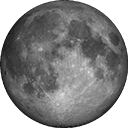There are moments and events that remain forever etched in our minds. The way to determine if an event qualifies for this category is that the person can accurately recall the date and time that the event occurred many years later. One such event is a total solar eclipse.
People who have witnessed a total solar eclipse use many superlatives in describing this occurrence. On November 13, people living in Northern Australia and New Zealand will have the opportunity to witness this spectacle firsthand.
What Is A Total Solar Eclipse?
Simply put, a total solar eclipse takes place when the moon passes between the earth and the sun. A total solar eclipse is only possible when there is a new moon. During such an eclipse, the sun is totally eclipsed by the moon.
These phenomenons have fascinated humans for centuries and were once even associated with supernatural powers before an explanation of their occurrence was made possible through science.
Details On The November 13 Eclipse
Unfortunately, as fascinating as it will be to see, the November 13 eclipse will be very brief in duration. This eclipse is expected to last for only about 4 minutes. The exact time on which the eclipse will occur over northern Australia will be 20:35:08 UTC. New Zealand will experience the eclipse at 23:48:24 UTC. The largest city in northern Australia to experience the intensity of this eclipse will be the city of Cairns. However, the city will only see the eclipse for approximately two minutes.
In New Zealand, the city of Auckland will experience a partial eclipse of approximately 80 percent. The city of Christchurch and the surrounding areas will experience a total solar eclipse of only about 60 percent.
Historically, the continent of Australia has been remarkably lucky with solar eclipses. In the last 26 years alone, this country has experienced a tally of 6 total eclipses.
Some parts of Chile will experience a total eclipse, specifically in the cities of Los Rios and Los Lagos.
Other Eclipses In 2012
There are a total of four eclipses in 2012. The first eclipse will appear on May 20-21 and will be an annular solar eclipse. The second eclipse, a partial lunar eclipse, will appear on June 4. The two total solar eclipses of the year will be one on November 13 and the penumbral lunar eclipse on November 28.
Some parts of Chile will experience total eclipse specifically in Los Rios and Los Lagos.
Protecting Your Eyes During An Eclipse
While they are a fascinating spectacle, there are still a warning that comes with their viewing. You should never look directly at an eclipse. This is because it can cause permanent damage to your eye’s retina. In order to see the eclipse while still protecting your eyes you should plan in advance to have filters or eclipse shades.

